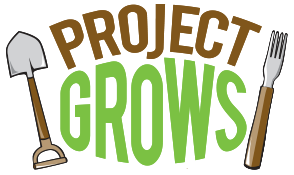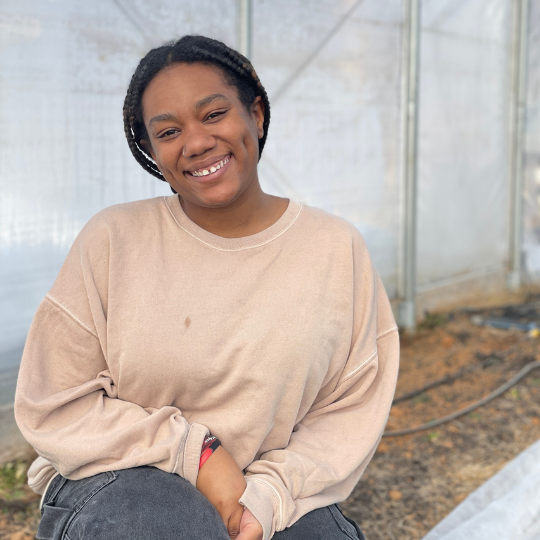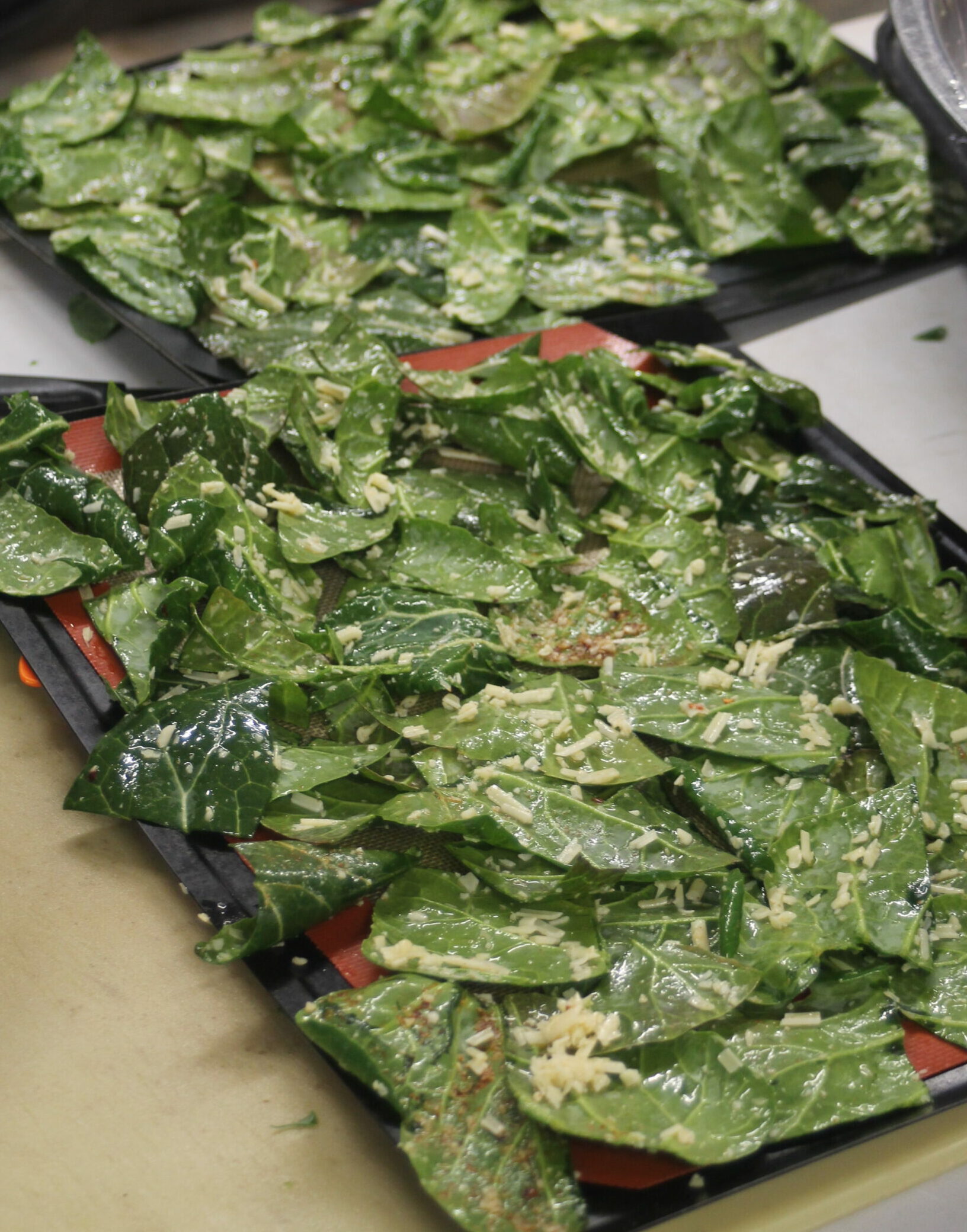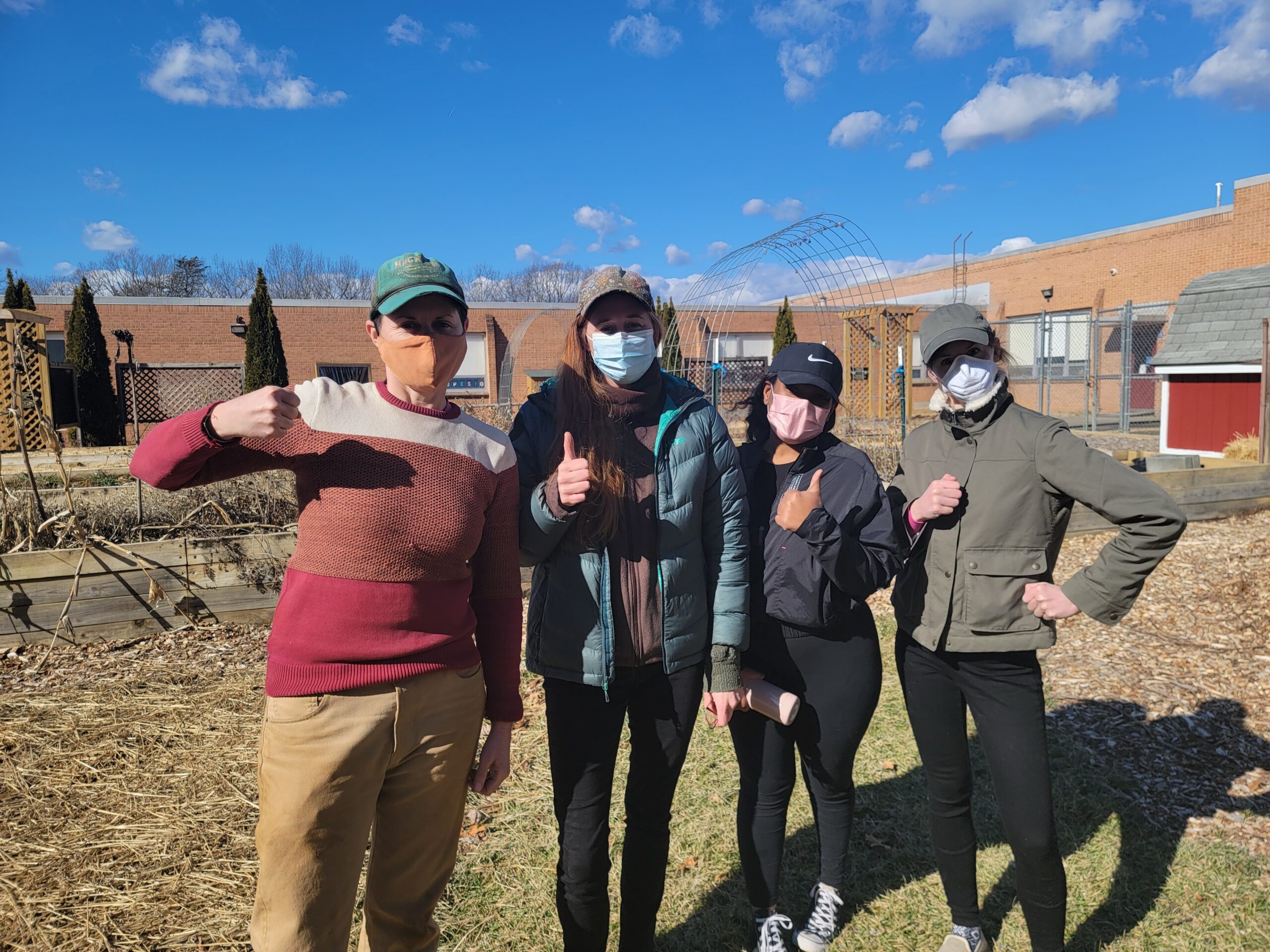By Abria Brown, Social Work Intern
Mary Baldwin University, Class of 2022
Since 2018, I have been working to graduate with my Bachelor’s Degree in Social Work and because of that, I am no stranger to internships. I completed three similar social work related internships during my time at Blue Ridge Community College and was really interested in finding a placement that could challenge what I’ve learned about what social work “looks” like this time around for my senior year Internship at Mary Baldwin University.
Project GROWS really stood out to me because it wasn’t a typical placement for social work intern students. When most people, myself included, look at the organization, their minds gravitate to farming, and while that is a big component, Project GROWS also focuses on things beyond the actual production of fruits and vegetables. In the six short weeks that I’ve been here, I have learned that the organization also has programs dedicated to advancing food education and expanding food access throughout our community.
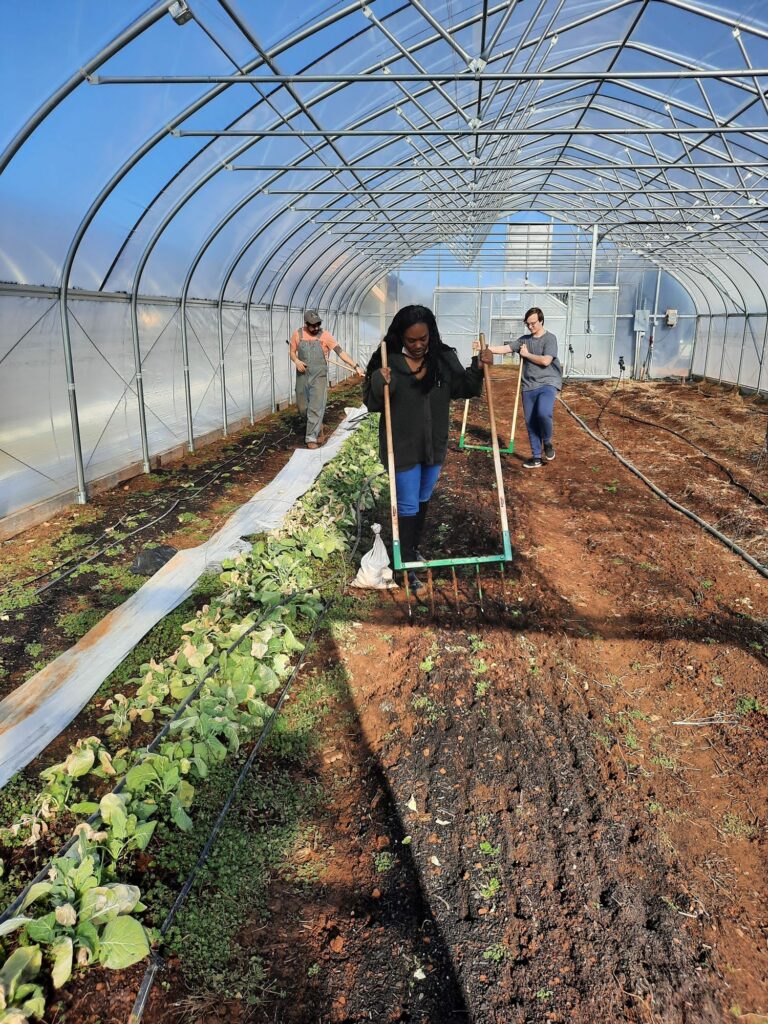
I have had the pleasure of being directly involved with one of Project GROWS’ food education programs offered to high school seniors as a mentorship opportunity. During my time with the Youth Leaders in Agriculture students, I’ve been able to learn about farming and agriculture alongside them, while also taking on a teaching role to relate what they’re learning about farming to other real life situations. The students have been learning how to interact with the land to create a harmonious interdependent working relationship, and those principles align with many of the ethics within social work. For example, one of the first things I learned as a social work student was to always observe the situation before attempting to offer a solution and that happened to be the Youth Leaders first lessons!
Youth Leaders also get to experience a lot of hands-on work such as harvesting produce, cleaning and interacting with tools, and even using the produce they harvested to cook! Just recently, both students were able to pick a recipe of their choice using collard greens for the group to cook together! We ended the day with delicious spicy parmesan collard green chips and quick sauteed collards. It has been rewarding to watch as their interest in vegetables grows as the days progress. I have also enjoyed being able to learn more about farming and even to incorporate some of the recipes we’ve introduced in my personal life.
Since starting my time with Project GROWS, I have also taken on the task of learning more about Eco-social work (also known as environmental/ecological social work). This subfield of social work focuses on the systemic and symbiotic relationship between all living organisms and ecological systems on Earth. This practice proposes that the job of social workers is to improve the living conditions of their community, and that includes studying and understanding the environmental factors around them. Eco-social work typically follows the Person-Environment Fit theory, which not only suggests that the individual has an impact on the environment but also that the environment has significant effects on the individual as well.
I’m excited to continue my research and begin to help implement more Eco-social work practices into future Project GROWS programs. This semester, I look forward to taking the lead on teaching lessons to the children of the local Boys and Girls Club, working alongside the preschoolers at Dixon Educational Center in preparing their garden for the growing season, and continuing to expand my knowledge about farming and the land around us with our Youth Leaders in Agriculture.
